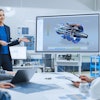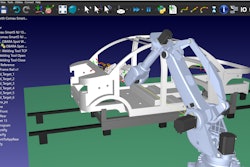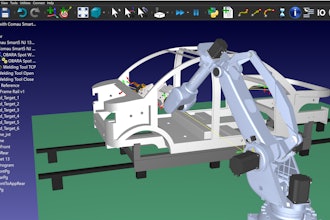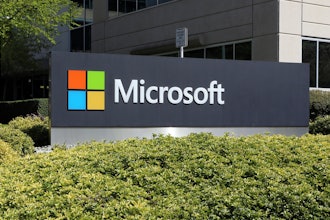With 2014 having just begun, it seems timely to take a look at what we can expect from enterprise resource planning (ERP) during the next 12 months. How will the landscape have changed by this time next year? There are plenty of well-known predictions — like in all sorts of industries, adoption of cloud is likely to increase and mobilisation will come into its own. More generally, we’re going to see attitudes to innovations in ERP significantly impact the competitiveness of organisations, as those who resist change risk falling behind their competitors.
This year, customers will expect ERP solutions to provide them with improved integration between technology and better collaboration between different departments, and ERP software will be able to respond.
Improving Collaboration
Outside of work, employees are used to communicating via social networking platforms. ERP software will start to imitate these kinds of social websites with emphasis on ease of use. User-friendly social tools will be fully integrated into ERP so that collaboration between colleagues, customers and prospects is improved. Greater collaboration will mean that different departments are constantly feeding into each other and customers can be immediately updated of any issues, so that any hiccups in the supply chain can be solved straight away.
Deepening Integration
Collaboration is all about improving how a company’s employees react to information and work together, integration is about bringing together all the technology you use. Integration between different technologies within a business, from 3D printers to mobile devices, is set to deepen in 2014. ERP software will talk to shop floor machines, factory robots, automated warehouse picking machines and the like, and natively pass information up and down the supply chain so that manufacturers can plan ahead more efficiently.
Mobile
ERP has been moving towards mobile throughout 2013, and in 2014, mobilization will transform from a handy add-on to a necessity. Mobilization will aid better collaboration and integration. It will offer manufacturers the same kind of benefits that it does to other types of businesses; employees can work remotely if they need to and sales teams can give immediate updates and be in better communication with other areas of the business. On top of this, mobilization can hugely impact the shop floor. Tasks like inspection, production reporting, material handling, quality control and more will all benefit from working on a portable tablet or mobile device. We released our own SYSPRO mobile app, Espresso, last year, and are expecting demand for mobile ERP to grow throughout this year.
The Cloud
The cloud isn’t suitable for every company, but plenty will start to investigate it as a beneficial option for the future and suitable candidates will start migrating. Customers will be interested in the benefits that cloud ERP can offer such as scalability, the ability to personalise and update with new features and functions and the ability to migrate data. The cloud also offers significant cost savings which is often one of the most compelling reasons to make the switch. Customers save on initial capital costs, on-going update and licensing costs and personnel costs for their IT department, not to mention indirect benefits, such as reduced energy bills and increased efficiency. An increasing amount of organisations will take advantage of these cost savings by migrating across.
The gap between organisations who are prepared to embrace innovation in ERP and those who aren’t will widen
ERP is becoming more responsive and flexible. It does, and will, continue to deliver genuine ROI in countless ways to users who are prepared to fully explore the capabilities that their ERP solution offers. Those who are reluctant to adjust to ERP or who are too invested in old, outdated legacy systems which struggle to adapt to supply chain growth will find themselves in danger of losing pace with the competition. As new technologies accelerate the capability of ERP to something hyper flexible, personalised and easy to innovate, those who are resistant to change risk falling behind and it will become increasingly more difficult for them to catch up as time goes on.
Written by Ruth Raistrick, head of client services at K3 Syspro, providers of ERP solutions in the UK.























